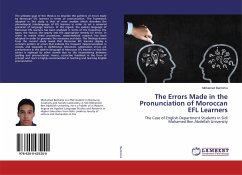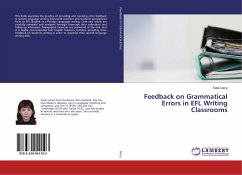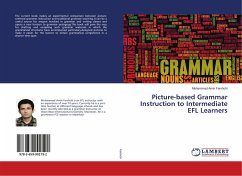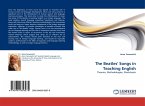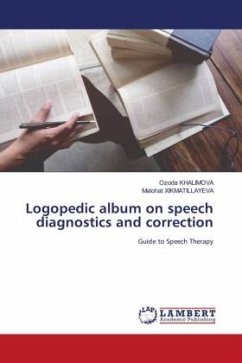The ultimate goal of this thesis is to describe the patterns of errors made by Moroccan EFL learners in terms of pronunciation. The framework adopted in this study is that of error analysis which describes the phonological interlanguage of EFL learners in order to set a universal grammar of language learners. In this regard, the spoken language of Moroccan EFL learners has been analyzed in terms of the frequency, the types, the factors, the gravity and the appropriate remedy for errors. In order to realize these procedures, mixed-method research has been adopted in order to generate the necessary oral data. The findings drawn from the current study reveal that Moroccan EFL learners display a common pattern of errors that indicate the frequent mispronunciation in vowels, and especially in diphthongs. Moreover, substitution errors are predominant in the spoken language of Moroccan EFL learners in that the schwa is replaced by other vowels due to the inconsistency between spelling and pronunciation. Hence, corrective feedback in the form of prompt and react is highly recommended in teaching and learning English pronunciation.
Bitte wählen Sie Ihr Anliegen aus.
Rechnungen
Retourenschein anfordern
Bestellstatus
Storno

